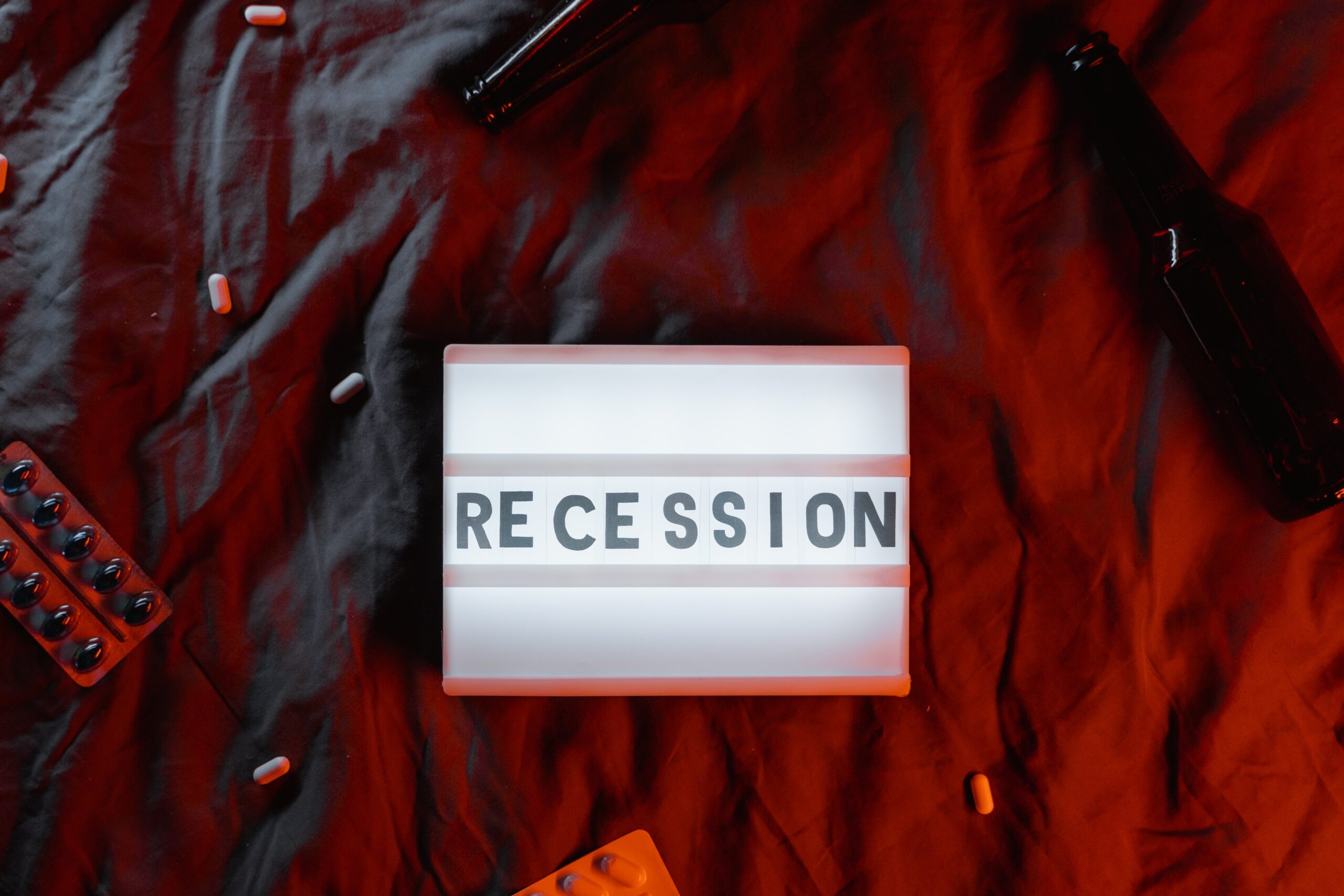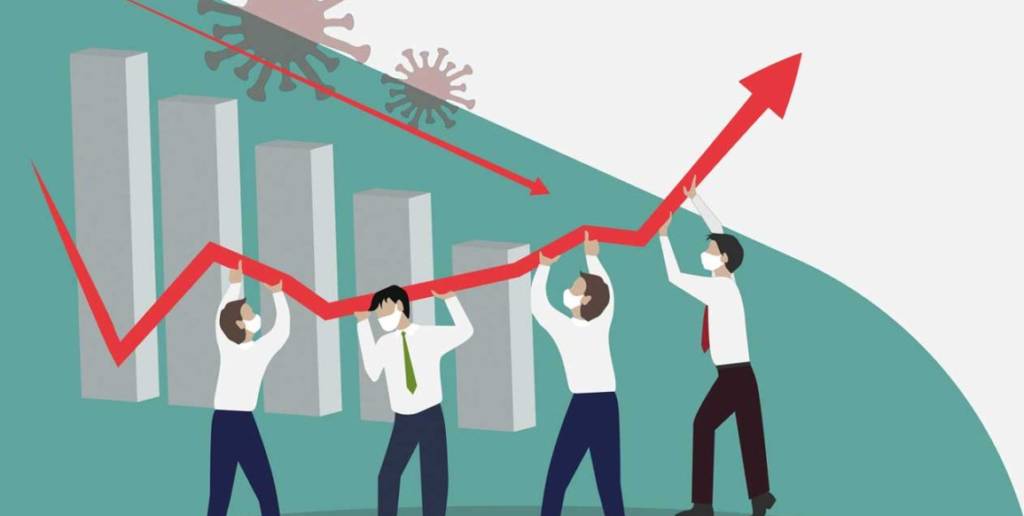- General
- No Comment
Guide to Recession – Factors You Need to Know About It

In simple words, We can define the Recession as a considerable or significant decline in Economic activity after a period of growth that lasts more than a few months. Its causes can be a drop in the following five economic identities: Income, employment, Real gross domestic product, retail sales, and manufacturing. Recession usually is visible in real GDP, Real income, industrial production, and wholesale and retail sales.
Recession Causes and Factors
In the past, recessions have occurred for many causes but typically result from economic inequalities or imbalances that must be corrected. Recession example: the 2008 recession was caused by excess debt in the housing market, whereas the drop in assets and investments in technology stocks caused the 2001 recession. In addition, an unanticipated shock, such as the COVID-19 pandemic, widely spread across the globe to damage corporate profits and trigger job cuts, can also be responsible for recession as it caused job cuts in different countries over the world and also caused inflation.
When unemployment increases, people, especially consumers, reduce spending, which pressures company earnings, economic growth, and stock prices. These elements can fuel a vicious cycle that overturns the economy. However, these factors or characteristics can be painful and discouraging.
Recessions are the natural and essential means of clearing excesses before the next economic expansion. Capital Group vice chair Rob Lovelace once said: You can only have a balanced or sustained period of growth with a minor or occasional downturn. It balances things out, is healthy, and is typical and expected.

The good news regarding how long it last is that recessions generally have not lasted very long
An analysis of 11 cycles since 1950 shows that recessions have continued to last between 2 and 18 months, with an average transiting for about ten months. Those affected by business closures or job losses during a recession may feel like an eternity has passed. Still, if we look at the complete picture, investors with a long-term investment horizon would be better served during the recession.
Effects Of Recession
What causes recession? What are the consequences of a recession for you if you are a business owner? The truth is it depends on your business, industry, and location.
An analysis showed that accommodation and food businesses, construction, and retail trade industries could be hit hardest in the coming months. Initiatives such as water, gas, waste services, and technical and mining services can be positioned to start recovering after the immediate effects of recession reduce or settle down. However, some recessional products are standard across most industries, and you might have already experienced them as a consumer or business owner during the 2020 pandemic:
Reduced Cash flow:
Small to medium businesses usually have small cash reserves. When money comes in, it eventually goes out to pay bills and other expenses. So when a recession occurs, consumers try to spend as little as they can, and they also delay the payment and purchase process, which can directly affect your business’s financial commitments and cash flow.
Decrease in Demand:
Talking about the covid-19 Pandemic covid led different countries around the globe into a massive recession. Economist divides the causes of the recession into two categories
- With a fall in demand, households, firms, and businesses wanted to spend less.
- With a fall in supply, productions or development processes from the firms’ side start to produce less due to a slide or drop in demand.
Both supply and demand factors were important in the Covid-19 pandemic US recession. Lockdowns and illness reduce the ability of people to work, and sectors such as hospitality that apply close human communications were shut down. These were severe supply disruptions.
Demand fell because social distancing and the fear of infectious disease reduced people’s desire to consume such services when they were open for business. In addition, revenue and incomes fall from job losses reduces consumers’ ability to spend, which as a result, causes families, individuals, and firms to delay spending until the uncertainty is resolved and covid 19 disappears.
Operational changes
Due to a reduction in supply, people shift and pivot their businesses. Depending on the size of your business, it can be scaling back operational processes to shut down significant investments. Companies changed the way they provide services or products due to economic downfall. 30% have changed their employees’ duties and workings.

Ways To Survive Recession
Stay Alert
As much as you may want to cover your ears, bury your head in the sand, and assume everything in business and industry, ignorance is not bliss in this case. Stay alert for the downfalls and upcoming unexpected turnovers that might affect your business on a small or large scale. Try to fast-track the workings of your business and prepare to save money during the continued time frame of the recession.
Lower Your Expectations
If you’re thinking about how to survive a recession, the word “survive” is critical. During tough times, you might not thrive (unless you are a lucky person), but you will surely be in maintenance mode.
This likely isn’t when you’ll be doing a lot of experimenting or pursuing an ambitious business idea. You’ll probably be on a hiring binge or resting easy with financial security. You might not see record revenue or close deal after deal.
Keep your eye on the end goal: keeping your business intact through a recession. You win if you can stay afloat and pay your bills on time.
Act Fast
After you notice that you have lost some of your current customers or clients—even long-standing ones— Have you considered dipping into your cash savings to shield your expenses?
You should wait another couple of months and see if things get better. After that, you must act quickly, as every minute is crucial. It may include cutting labor costs, which always stings.
Whether cutting costs (including labor costs, which always sting) or building up more of an emergency reserve, you want to get ahead of a potential recession as much as possible.
As counterintuitive as it may seem, those swift decisions can be easier on your staff. “One big workforce reduction is much better than a series of small ones, which will feel like cutting someone’s leg off one inch at a time,” Baker adds.
Keep Yourself Cool
What happens in a recession? Recessions can be scary, but keeping yourself calm and applying the above measures to survive during a recession can be helpful. Try your best to stay confident and relaxed. Remember to remind yourself that you have enough resources and can figure it out even when the time is challenging.
